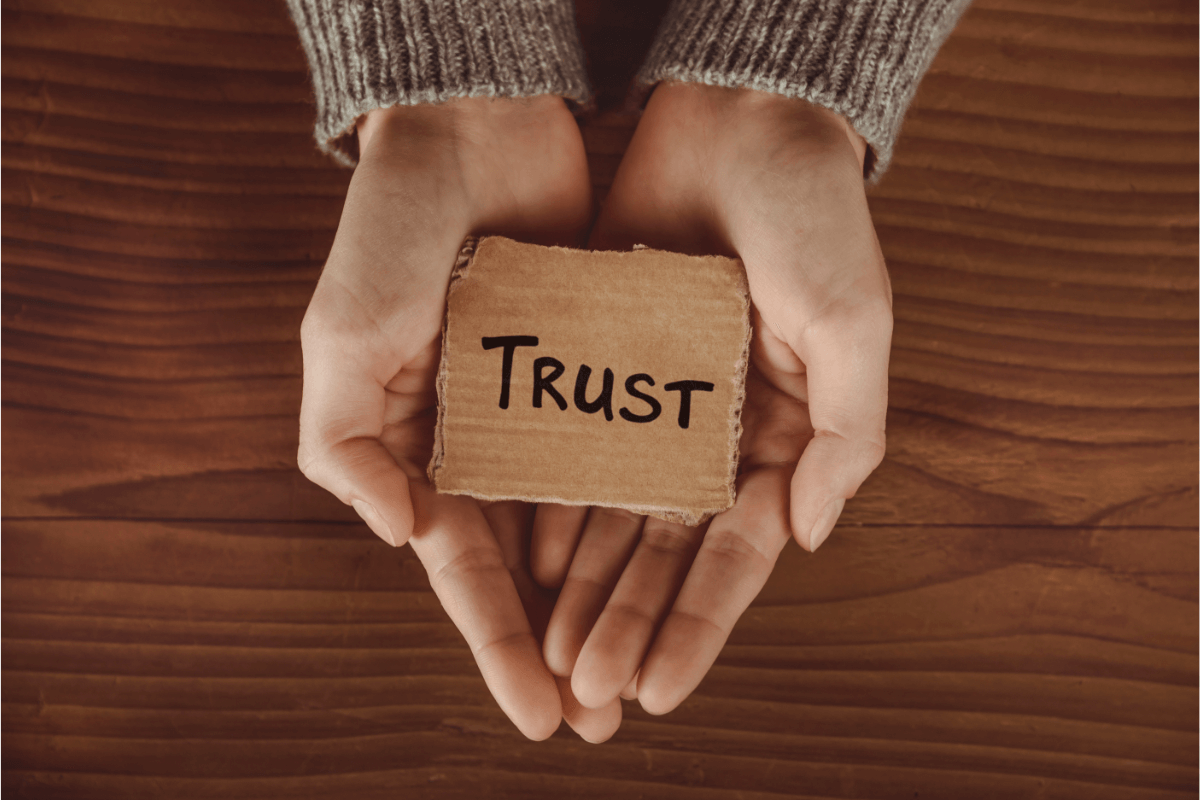Going through a traumatic experience can impact how well you trust others and how well you trust yourself. When you have a lack of trust, your relationships and your emotional health are affected. But, learning that it is possible to trust others and yourself once again can help you to overcome your trauma and live a productive life. As we explore how trauma causes trust issues, we’ll also take a closer look at how to rebuild trust after trauma and how trauma therapy in Scottsdale can help in the process.
What Causes Trust Issues After Trauma?
After someone experiences a trauma, they can develop trust issues for several reasons, including:
- Feeling Betrayed
- Being the Victims of Physical, Emotional, or Sexual Abuse
- Witnessing Violence or an Accident
- Dealing with Grief
When someone has trust issues, it can break down relationships and make it difficult to communicate and solve problems.[1] If a trauma victim has shut down and is not communicating, others may react to them differently, which can lead to further isolation and trust issues.
Signs of Trust Issues
Trauma victims who have trust issues often manifest them in similar ways. While they usually feel misunderstood and lonely, they tend to be suspicious of others and constantly question others’ motives. This can lead them to make false accusations against others, hurting their relationships. They have trouble forgiving others and themselves and tend to push others away for fear of getting hurt again.
Someone who is having trouble trusting others may also be hypervigilant. They may be in a constant state of alertness to not get hurt again and experience another traumatic episode.
How to Rebuild Trust After Trauma
It is essential to recognize your trust issues and realize it is possible to rebuild trust. Here are several ways you can work towards your goal of rebuilding trauma:
Practice Forgiveness
When you practice forgiveness, you are not excusing the trauma you experienced. Instead, you are letting go of the anger and resentment it has caused. Learning to forgive is an important step in learning to trust other people again, whether they hurt you physically, emotionally, or mentally.
Communicate with Others
While it may be difficult, it is important to communicate with others about your fears and feelings. Let the other person know how their actions hurt you and your ability to trust others if possible.
Attend a Support Group
Being with others who have experienced trauma and who are having trust issues as a result can also help. This can help to bring people out of the isolation they may be experiencing and help them learn how others are coping and how to rebuild trust. Knowing that others are going through similar experiences can be therapeutic and helpful.
Eye Movement Desensitization and Reprocessing (EMDR)
Eye movement desensitization and reprocessing involve a patient thinking or talking about the trauma while focusing on other stimuli, such as eye movements or sounds. This can help to desensitize and better process the feelings surrounding your trauma.
Seek Trauma Therapy
Trauma therapy can play a huge role in regaining trust. A therapist can offer guidance and support, as well as tools, to help rebuild trust. Cognitive behavioral therapy can be a great help as it works to identify and challenge negative thought patterns and develop healthier thinking patterns and behaviors. Patients also learn how to replace negative thoughts with a more balanced way of thinking. This is important for patients to regain trust and improve their mental well-being.
Therapy sessions can also focus on emotion, helping patients identify and process their emotions to rebuild trust. Through emotion-focused therapy, patients are encouraged to examine their past experiences to uncover what caused their trust issues. They are also prompted to explore those experiences to better understand and resolve the problems they may currently be facing. This therapy can help patients have healthier relationships and learn how to trust again.
Benefits of Trauma Therapy to Regain Trust
When patients use trauma therapy to help regain trust, it can help them address the root causes of their mistrust. This is vital if they want to improve their relationships and work through the emotional walls their trauma has formed.
Trauma therapy also helps patients to feel more confident and respond to situations more calmly. Other benefits of trauma therapy include developing healthier thinking patterns and behaviors as well as being able to handle life’s challenges more effectively.
Challenges that Can Accompany Trauma Therapy
While trauma therapy brings many benefits to helping patients regain trust, it is not without its own set of challenges. Patients may exhibit defensive behaviors, such as emotional detachment, which can hinder the therapy process. They may also have difficulty trusting their therapist.
Some patients also hold back their emotions, making it difficult for them to express their feelings, slowing down the therapy process. They may also experience intense emotions and find the therapy process overwhelming, which can impact outcomes.
As therapists address these challenges, patients can see better results as they learn how to rebuild trust. The critical thing for trauma survivors to remember is that although it may have only taken one instance to break trust, it can take much longer to rebuild it. Allowing yourself the time to trust again is a vital part of the process.
Seek Trauma Therapy in Scottsdale at Healing Foundations Center
Healing Foundations Center offers trauma therapy in Scottsdale, AZ, to help patients rebuild trust in themselves and others. Our team provides a variety of treatments to help patients realize that is possible to regain trust following a traumatic experience. We offer individual trauma recovery outpatient care as well as intensive outpatient programs that include weekly individual sessions and small group therapy sessions.
If you or a loved one is looking for trauma therapy in Scottsdale, reach out to the team at Healing Foundations Center today to discover how our programs can help.
Sources:
[1] https://www.ptsd.va.gov/family/effect_relationships.asp#
